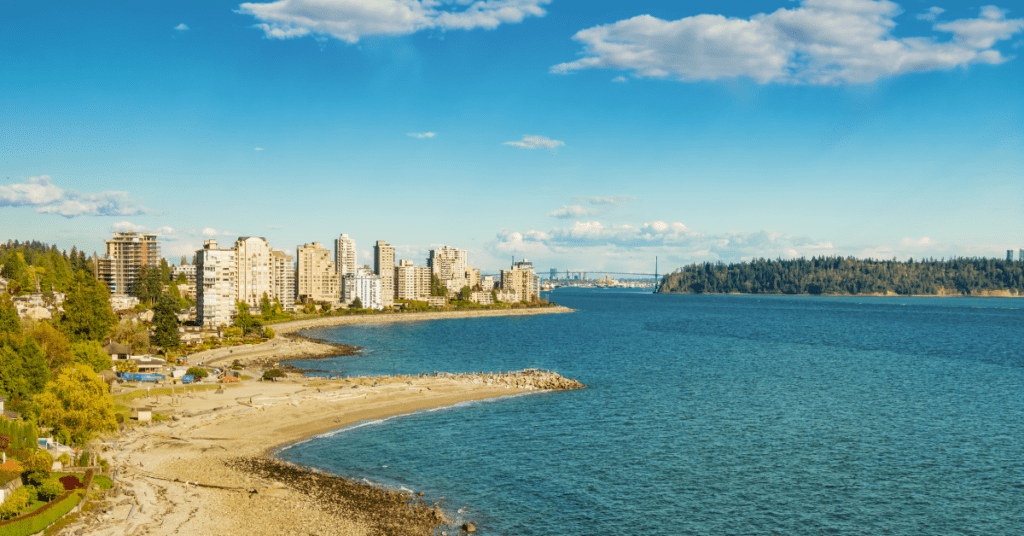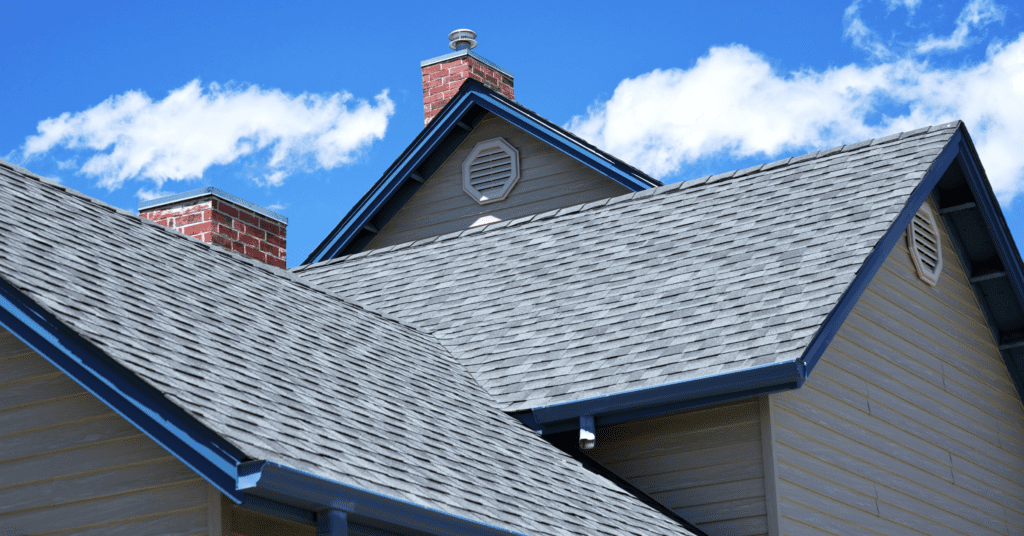How to Choose the Right Roof for Coastal Properties


Choosing the right roof for coastal properties requires careful consideration due to the unique climate and environmental conditions. Coastal areas in BC experience heavy rainfall, strong winds, salt air, and occasional snow, all of which can impact the longevity and performance of a roof. Here, we outline the key factors to consider and the best roofing materials for your coastal property.
Factors to Consider
Climate and Weather Conditions
The coastal climate in BC is characterized by high humidity, frequent rain, and strong winds. Roofs in these areas need to be highly resistant to moisture and wind damage. It’s a common misconception that all roofing materials are equally vulnerable to wind damage. 3 Common Misconceptions About Wind Damage on Roofs can help you understand which materials offer better protection. Additionally, properties near the ocean must withstand salt air, which can cause corrosion and deterioration of certain materials.
Durability and Longevity
Given the harsh weather conditions, it’s essential to choose a roofing material that offers durability and a long lifespan. Coastal properties face unique challenges that can threaten roof integrity. Learn about 12 Common Threats to Your Roof’s Structural Integrity to safeguard your home. A roof that can withstand heavy rains, wind, and salt air will reduce the need for frequent repairs and replacements.
Energy Efficiency
Energy efficiency is another important consideration. A well-insulated roof can help maintain a comfortable indoor temperature and reduce energy costs. Temperature extremes can impact your roof’s durability. Understand Why Would a Roof Being Too Hot or Too Cold Shorten Its Lifespan? for better maintenance. This is particularly relevant in coastal areas where homes may need additional heating in the winter and cooling in the summer.
Aesthetics and Style


The roof should complement the architectural style of the property and the surrounding environment. Coastal properties often benefit from materials and colors that blend well with the natural landscape.
Local Building Codes and Regulations
It’s crucial to adhere to local building codes and regulations when selecting a roofing material. These codes are designed to ensure that buildings can withstand the specific environmental challenges of the region.
Best Roofing Materials for Coastal Properties
Metal Roofing
Metal roofing is an excellent choice for coastal properties due to its durability and resistance to salt air corrosion. Given the coastal environment, Why Installing Metal Roofing Is a Good Idea becomes evident due to its durability and resistance to salt air corrosion. Materials like aluminum, stainless steel, and zinc are particularly well-suited for these conditions. Metal roofs are also resistant to wind damage and have a long lifespan, often exceeding 50 years. Additionally, they are energy-efficient and can be designed to reflect solar heat, helping to keep homes cooler in the summer.
Asphalt Shingles
Asphalt shingles are a popular and cost-effective option for many homeowners. For coastal properties, it’s advisable to choose high-quality, algae-resistant shingles that can withstand high humidity and heavy rainfall. When considering asphalt shingles for your coastal property, it’s essential to know the 4 Qualities to Look for in Good Asphalt Shingle Roofing to ensure durability and performance. Architectural asphalt shingles, which are thicker and more durable than standard three-tab shingles, provide better protection against wind and weather.
Clay and Concrete Tiles


Clay and concrete tiles offer excellent durability and resistance to the harsh coastal environment. They are heavy, which provides good protection against wind uplift, and they are not susceptible to salt air corrosion. These tiles also have a long lifespan and can be found in various colours and styles to suit different architectural designs. However, they can be more expensive and may require additional structural support due to their weight.
Slate Roofing
Slate is a natural stone material known for its exceptional durability and long lifespan, often lasting over 100 years. It is highly resistant to water and wind damage, making it an ideal choice for coastal properties. Slate also provides a natural, elegant appearance that can enhance the aesthetics of a home. However, like clay and concrete tiles, slate is heavy and expensive, requiring professional installation and potentially additional structural support.
Synthetic Roofing Materials
Synthetic roofing materials, such as synthetic slate and composite shingles, offer the appearance of natural materials like slate and wood but with added durability and resistance to coastal conditions. These materials are lightweight, resistant to moisture and UV damage, and often come with long warranties. They can be an excellent choice for homeowners looking for a balance between aesthetics, performance, and cost.
Installation and Maintenance Considerations
Professional Installation
Proper installation is crucial for the longevity and performance of any roofing material, especially in coastal areas. It’s essential to hire experienced and reputable roofing contractors like Vantage Roofing who understand the specific challenges of coastal environments and can ensure that the roof is installed correctly and securely.
Regular Maintenance


Regular maintenance is key to prolonging the life of a roof in coastal areas. In coastal areas, winter weather can lead to unexpected roofing issues. Dealing With Emergency Roofing Repairs During Winter can provide valuable insights into managing these situations. This includes routine inspections to check for damage, cleaning gutters and downspouts to prevent water buildup, and removing debris that can trap moisture. Addressing minor issues promptly can prevent more significant problems and cochallenges posed by the region’s climate and environmental conditionsstly repairs in the future.
Protective Coatings and Treatments
Applying protective coatings and treatments can enhance the durability and performance of roofing materials. It’s crucial to understand the implications of wet weather on roofing projects. Our article Can You Roof in the Rain? explores this topic in detail. For example, metal roofs can be coated with anti-corrosion treatments, and asphalt shingles can be treated to resist algae and mold growth. These measures can provide additional protection against the harsh coastal environment.
Conclusion
Choosing the right roof for coastal properties involves considering the unique challenges posed by the region’s climate and environmental conditions. Metal roofing, high-quality asphalt shingles, clay and concrete tiles, slate, and synthetic materials all offer viable options, each with its own set of advantages. By selecting a durable, weather-resistant roofing material and ensuring proper installation and maintenance, homeowners can protect their investment and enjoy a long-lasting, aesthetically pleasing roof that enhances the overall value of their coastal property. Familiarizing yourself with 16 Roofing Terms You Need to Know! can make understanding roofing materials and maintenance easier.
If you’re considering a new roof for your coastal property or need expert advice on maintaining your current one, our team is here to help. We provide professional roofing services across various locations.
- Burnaby roofers and roofing contractors
- Coquitlam roofers and roofing contractors
- Delta roofers and roofing contractors
- Ladner roofers and roofing contractors
- Langley roofers and roofing contractors
- Maple Ridge roofers and roofing contractors
- New Westminster roofers and roofing contractors
- North Vancouver roofers and roofing contractors
- Pitt Meadows roofers and roofing contractors
- Port Coquitlam roofers and roofing contractors
- Port Moody roofers and roofing contractors
- Richmond roofers and roofing contractors
- Surrey roofers and roofing contractors
- West Vancouver roofers and roofing contractors
- White Rock roofers and roofing contractors
- Vancouver roofers and roofing contractors
Contact us at Vantage Rooding Ltd. to schedule a consultation and ensure your roof is well-prepared to withstand the unique coastal conditions.
